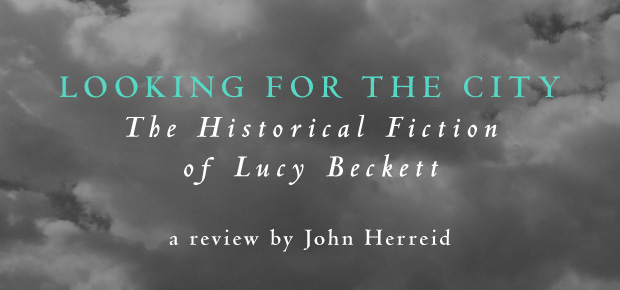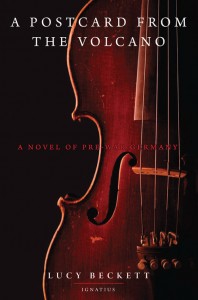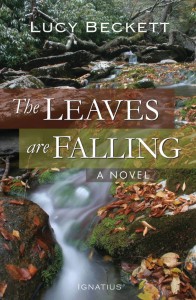
“Let us pine for the City where we are citizens… By pining, we are already there; we have already cast our hope, like an anchor, on that coast. I sing of somewhere else, not of here; for I sing with my heart, not my flesh. The citizens of Babylon hear the sound of the flesh, the Founder of Jerusalem hears the tune of the heart.”
—Saint Augustine of Hippo
We’re used to simp le narratives about history. They are necessary. You have to simplify and generalize to a degree when teaching the subject; unless you are a specialist, you just don’t have the time to pull out a magnifying glass and attempt to separate and study all of the convoluted and tangled threads that make up the tapestry of time.
le narratives about history. They are necessary. You have to simplify and generalize to a degree when teaching the subject; unless you are a specialist, you just don’t have the time to pull out a magnifying glass and attempt to separate and study all of the convoluted and tangled threads that make up the tapestry of time.
Lucy Beckett is a writer who isn’t satisfied with the simple narrative. Her books A Postcard from the Volcano and The Leaves are Falling are the work of a scholar who knows her history. But more than a historian, she’s a sensitive and perceptive writer of fiction with a real knack for character study. Even the minor characters in her books feel fully alive.
Both books involve the tumultuous 20th Century history of Eastern Europe. Perhaps more than any other region of the West, Eastern Europe has over the past century been pulled, partitioned, manipulated, segmented, absorbed, programmed, and deprogrammed. The characters in Beckett’s two novels are men and women who feel homeless, estranged from their fractured homelands despite having deep ancestral roots in the land.
It’s not often that an author writing historical fiction is able to accomplish what amounts to both a lesson in history as well as a lesson in humanity. Reading these two books takes you deeply into the 20th Century history of Europe, particularly Eastern Europe. The reader’s understanding of the various tensions, political movements, regions, ethnic and religious groups that made up Europe between the wars will be greatly enhanced by reading these books, may spark an interest in learning more about the fascinating and sometimes tragic history of Eastern Europe.
A Postcard from the Volcano follows the Prussian aristocrat Max von Hofmannswaldau through his young adulthood as he and his friends try to make sense of the heady political and philosophical currents sweeping Europe after the first World War. The book is rather wordy at times; the young men and women in the book spend a great deal of time in philosophical discussions and if you don’t pay close attention to conversations it’s easy to become lost. The awakening of adolescent passion to literature, music, and grand ideas is portrayed in heartbreaking detail, as are the stirrings of sexual desire. She captures the raw emotional state of young adulthood so perfectly that it is often painful to read. Overshadowing it all is the unseen horror of World War II. The book ends before the start of the War, but in the final pages we’re given a list of all the primary characters and their dates of death. Only one survived to give us this postcard of names.
 The Leaves are Falling is a sequel of sorts, following Josef Halperin, a Jewish refugee and the son of one of Max’s circle of friends in Postcard. Reading the first book isn’t at all necessary to following the plot of The Leaves are Falling, but it will deepen the experience. Again, Lucy Beckett excels at depicting young adulthood and its insecurities. For Josef, matters are complicated by the terror he has lived though. Suffering from post-traumatic stress, he struggles to fit in to a British society that is politely uninterested in his background. The atmosphere of English repression contrasts with the passionate academic world of ideas in Postcard, helping the reader share in Josef’s feeling of alienation. Here the questions—why are we here? what does life mean?—are not being put to students or professors; they are being asked of God himself. The great “why?” of human suffering and misery is the ultimate challenge in life, and Beckett is uncompromising in posing it in this book. But her questioning does not arise from a nihilistic view of humanity; hope is still there among the wreckage. In the last part of the book, we flash back to Russia as Josef’s father, Jacob, is imprisoned in a Russian prison camp with great literary significance. The consolation he finds as he is led to his Golgotha in the forest of Katyn is as unsentimental as it is moving.
The Leaves are Falling is a sequel of sorts, following Josef Halperin, a Jewish refugee and the son of one of Max’s circle of friends in Postcard. Reading the first book isn’t at all necessary to following the plot of The Leaves are Falling, but it will deepen the experience. Again, Lucy Beckett excels at depicting young adulthood and its insecurities. For Josef, matters are complicated by the terror he has lived though. Suffering from post-traumatic stress, he struggles to fit in to a British society that is politely uninterested in his background. The atmosphere of English repression contrasts with the passionate academic world of ideas in Postcard, helping the reader share in Josef’s feeling of alienation. Here the questions—why are we here? what does life mean?—are not being put to students or professors; they are being asked of God himself. The great “why?” of human suffering and misery is the ultimate challenge in life, and Beckett is uncompromising in posing it in this book. But her questioning does not arise from a nihilistic view of humanity; hope is still there among the wreckage. In the last part of the book, we flash back to Russia as Josef’s father, Jacob, is imprisoned in a Russian prison camp with great literary significance. The consolation he finds as he is led to his Golgotha in the forest of Katyn is as unsentimental as it is moving.
Both books are not just meditations upon the 20th century or explorations of Eastern Europe. They are examinations of the human condition, of life, death, love, and loss. To quote St. Augustine, Lucy Beckett sings of somewhere else, not of here. We have all heard that song, whether we recognize the tune or not.






Stephanie A. Mann
May 16, 2014 at 10:41 am
Don’t forget her earlier work, set in a different century and with a different crisis, “The Time Before You Die”!
John Herreid
May 16, 2014 at 10:49 am
Oh, yes! It’s been a while since I read that one, but is also very good.
Ignatius Press Novels | If you don’t look for it, you won’t find it
May 23, 2014 at 1:02 pm
[…] I recently posted about the fine novels of Lucy Beckett, which are well worth your […]